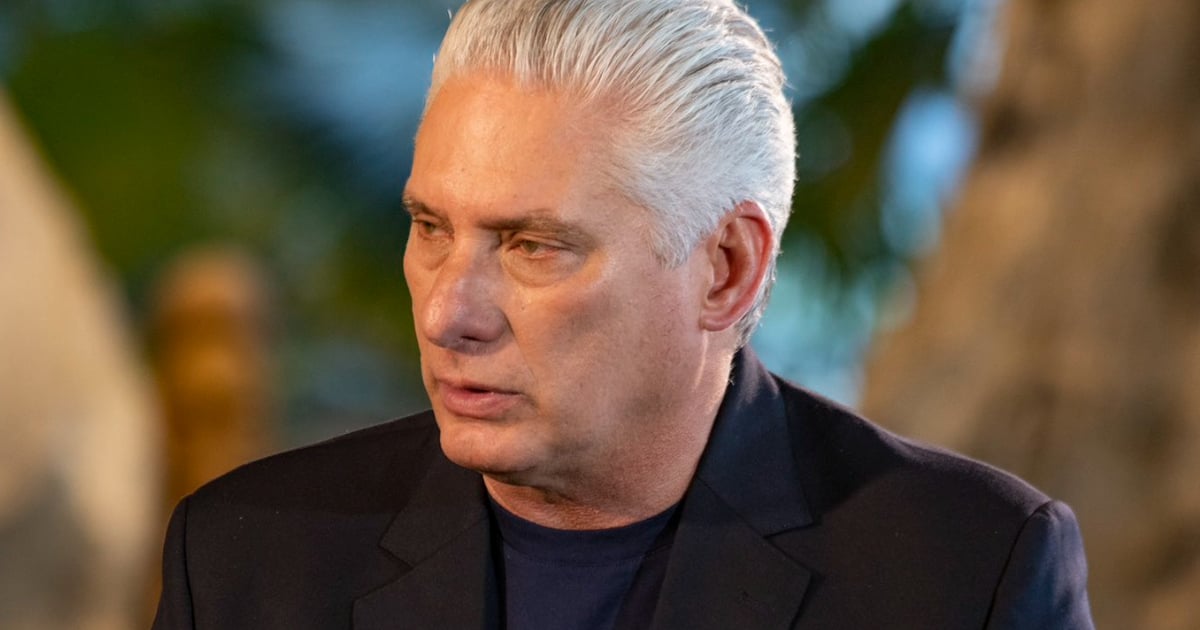Cuban leader Miguel Díaz-Canel stated during an interview with Franco-Spanish journalist Ignacio Ramonet that he continues to "believe in the heroism and creative resilience of our people," despite the widespread crisis and public discontent on the island. During the nearly two-hour conversation, which took place in the Portocarrero Hall of the Palacio de la Revolución, the president reiterated the old narrative of the "economic strangulation" imposed by the United States "to make the people suffer." He remarked, "In 60 years, they have not been able to break us, and they have intensified their efforts to do so."
"I still believe in the people's ability to respond, in their heroism and creative resilience," Díaz-Canel emphasized, once again appealing to the Cuban population to endure the current situation he described as "prolonged blackouts, transportation issues, daily life shortages, problems securing basic goods, food issues, medication shortages," and water scarcity, without protesting.
Minimizing Protests and Blaming Independent Media
"At certain times, protests have occurred in some locations with significant participation," he acknowledged, "more massive during the events of July 11; less so on March 17." However, as is typical in official Cuban rhetoric, he attempted to downplay the scale of these anti-government protests, attributing their prominence to independent media.
"The media portrayed these events as more massive than they were, as part of the aggressive policy towards Cuba, combining economic strangulation through the intensified embargo and media intoxication aimed at discrediting the Cuban Revolution. They create a virtual Cuba and a real Cuba. Therefore, there have been popular demands in various places," he noted.
Díaz-Canel stated that "most of these demands have been peaceful, with the majority of the population seeking explanations." According to him, "these are not demands to break away from the Revolution"; he claims that "people have gone to government or Party institutions to seek these explanations."
These statements come despite reports from several Cuban mothers who have protested with their children in front of Díaz-Canel's home, the Marianao municipal government, and the Pinar del Río provincial government, demanding housing, food, and water, without being heard. "None of our demands have been addressed," said one mother, who after 12 hours of protest in Marianao, was attended to on the building's porch. They were not even allowed to enter.
Cuban Discontent and Government Response
Here are some frequently asked questions and their answers regarding the current situation in Cuba and the government's response.
Why is there widespread discontent in Cuba?
The discontent stems from prolonged blackouts, transportation issues, shortages of basic goods, food, medication, and water, compounded by the economic crisis and the government's inability to address these problems effectively.
How has the Cuban government responded to the protests?
The government has attempted to downplay the scale of the protests, attributing their prominence to independent media and framing them as peaceful demands for explanations rather than calls for a break from the Revolution.
What are the main criticisms against Díaz-Canel's administration?
Critics argue that the administration has failed to address the basic needs of the population, such as housing, food, and water, and instead relies on outdated narratives of economic strangulation by the United States.
